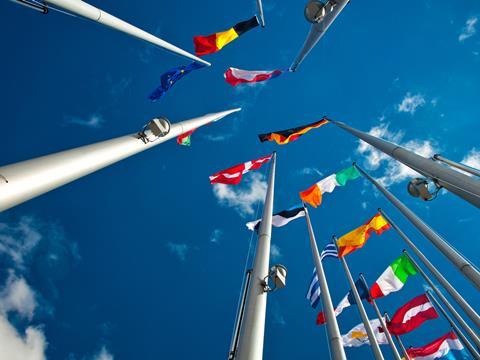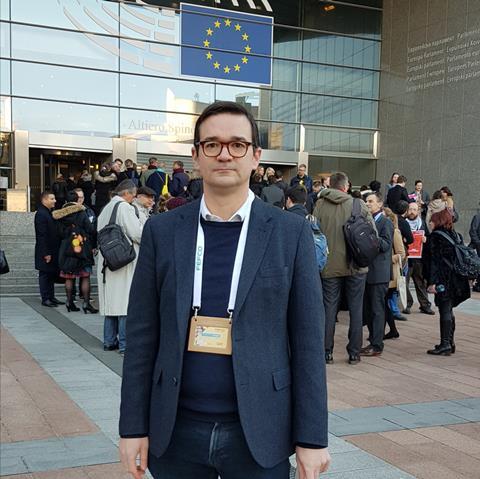
The UK leaves the European Union on 31st January. Packaging Europe’s Brand Director Tim Sykes shares his personal and professional reflections ahead of the historic day.
One thing that everyone agrees in these polarized times is that they are tired of Brexit. In December Boris Johnson gambled on the UK public’s boredom with news dominated by the B-word by running a campaign based around the uninspiring slogan of “Get Brexit done”. Although around 53% of the UK electorate voted for parties that were either opposed to Brexit or promised a second referendum, the 43% who opted for Johnson to ‘get it done’ will control British politics for the next crucial years.
The irony is that Brexit will be ‘done’ tomorrow only symbolically. The harsh realities that have rendered Brexiteers’ simplistic promises so frustratingly hard to accomplish in the last three years of negotiations remain in place. Above all, the UK cannot both assert its sovereignty to diverge from the European regulatory landscape without creating barriers between the deeply integrated European and British markets. Up till now, English nationalist discourse seems unwilling to break free of its rhetorical prison and at last acknowledge the trade-offs that such realities demand. The UK government has set an arbitrary deadline of the end of 2020 to conclude a new trade deal with the European Union – which we might think of as “Get Brexit done” 2.0. This is likely to mark either the point at which realistic compromises are made or the moment that rhetoric is forced to repay its debt to reality.
I became a packaging journalist in 2006. By then globalisation had already transformed FMCG. The EU packaging and packaging waste directive was already 12 years old. Therefore, it has made sense throughout my career to view packaged goods through an international lens. Our value chains and supply chains cross borders. The environmental challenges we face demand regulatory leadership – and those driving sustainability across our industry are asking the Commission for more coherence, more harmonisation. From a professional point of view, Brexit, and the wider anti-cooperative political phenomenon it represents, is destructive and lamentable. As such, while it’s pointless campaigning against Brexit now, Packaging Europe will advocate close economic and institutional collaboration in the post-Brexit relationship.

However, on this day I hope you’ll indulge an additional personal perspective. Tomorrow, along with millions of others, I will involuntarily lose my EU citizenship. In time perhaps I’ll require a visa to visit my friends and colleagues in Brussels, Berlin or Barcelona. Perhaps arrivals from the UK will be asked to join a different queue at passport control. None of these little barriers will prevent me from travelling, collaborating or indeed identifying as European. Nevertheless, I shall grieve these subtle changes. Twenty years ago, I invoked my right to freedom of movement as an EU citizen to live in Hamburg, to learn (and subsequently verlernen) German. I cherished that freedom and the opportunities it gave me. It seems likely my own children will be denied these.
The point where the personal and professional converge is in the fact that collaboration is about human relationships. Removing the barriers of national sovereignty encourages connections – whether those are international trading relationships or the Erasmus exchanges that foster a lifelong affinity with the culture and language of another country (and in some cases a lifelong fear of British food). Many times a year I find myself somewhere in Europe surrounded by professionals, more often than not talking about sustainability in packaging. I don’t believe a single one of us pauses to consider that we represent multiple nationalities. I don’t think anyone feels like a foreigner. Often, we even start to forget we’re representing separate (and sometimes competing) businesses. And I doubt that we would have achieved quite this sense of being the same, and working to a common purpose if forces of cooperation hadn’t propelled the EU into existence.
Whatever the turbulent politics of the next decade brings, it’s vital that we retain and build upon this spirit of cross-border collaboration, not just within Europe, but throughout the world. As a species, we are facing our greatest ever challenges, and we can only overcome them together. The present signs suggest that as a whole we’re struggling with the opposite impulse. All the more reason for those of us in the packaging community to work harder than ever to collaborate and support the institutions that break down barriers. As an international voice within the industry, Packaging Europe will strive to support that goal. And so, on this eve of Brexit, I’d like to end by saying thank you to the EU for everything it has done both for me personally and to construct the world I live and work in. I hope we’ll be back someday.













